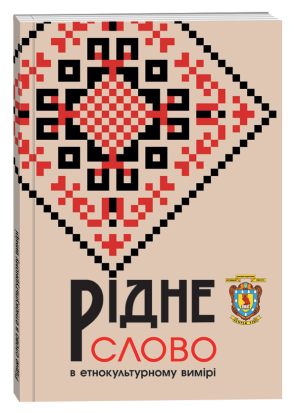PHRASEOLOGEM-ENTOMONYM IN THE STRUCTURE OF PHRASEOLOGICAL UNITS OF EAST SLAVIC LANGUAGES: LINGUOCULTURAL ASPECT
DOI:
https://doi.org/10.24919/2411-4758.2021.213168Keywords:
phraseological units; phraseology; phraseological space; phrase system; interlingual comparison; entomonym; structural component.Abstract
The article examines the phraseological units of the Ukrainian, Russian and Belarusian languages with phraseologisms-entonyms; it was found that in the phraseological systems of East Slavic languages there are many stable compounds with the names of insects (entonyms), the world of which is extremely rich and diverse; it was noted that they clearly show the features of the national mentality, refl ect the specifi cs of worldview, thinking of the Eastern Slavs; Although most phraseological units with an entomonym component have the same semantics in East Slavic languages, each of them reveals specifi cs regarding the functioning of phraseological units. The purpose of the article is to analyze the phraseological units’ structure with entomonymic component, represented in modern phraseological dictionaries of Ukrainian, Russian and Belarusian, in a comparative aspect; to single out the phraseologisms-entonyms, the meanings of which is closely connected with the cultural and historical traditions of the people. The results of the study showed that comparative linguistic and cultural analysis allows us to state that entonyms in the East Slavic phraseological space are a powerful factor in forming the national image of the world; interlingual comparison of the structure of phrases with the phraseology-entomonym refl ects mainly negative connotations, which mainly characterize any quality of a person - his intellect, actions, behavior, appearance, shortcomings of character. For the future, there remains the analysis of stable expressions with a phraseologeme-entomonym in East Slavic languages in the linguoculturological aspect, their further interlingual comparison and the discovery in them of differences and common features associated with the peculiarities of refl ecting the mentality of a particular people.
References
Білоноженко, В. та ін., укладачі (2013). Фразеологічний словник української мови. Т. 1. Київ: Наукова думка.
Білоноженко, В. (2013) та ін., укладачі. Фразеологічний словник української мови. Т. 2. Київ: Наукова думка.
Булашев, Г. (1993). Український народ у своїх легендах, релігійних поглядах та віруваннях: монографія. Київ: Довіра.
Доброльожа, Г. (2017). Ентомологічний етноконцепт як відображення світобачення та народної свідомості українця (на матеріалі фразеології середнього Полісся). Наукові записки. Серія: Філологічна, 153, 429 – 433.
Енциклопедичний словник символів культури України (2015). / За заг. ред. Коцура, П., Потапенка, О., Куйбіди, 5-е вид. Корсунь-Шевченківський, ФОП Гавришенко
В. Жайворонок, В. (2006). Знаки української етнокультури: словник-довідник. Київ: Довіра.
Лепешаў, І. (2008). Слоўнік фразеалагізмаў. У 2 т. Т. 1. Мінськ: Беларуская Энцыклапедыя імя Петруся Броўкі.
Лепешаў, І. (2008). Слоўнік фразеалагізмаў. У 2 т. Т. 2. Мінськ: Беларуская Энцыклапедыя імя Петруся Броўкі.
Маслова, В. (2001). Лингвокультурология: учебное пособие для студентов высших учебных заведений. Москва: Академия. Молотков, А. (1968). Фразеологический словарь русского языка. Москва: Советская энциклопедия.
Онуфрійчук, Г. (2016). Лінгвокультурологічний потенціал української етнофразеології: асоціативне поле «Людина в колі інших істот» (Дис. канд. філол. наук). Національна академія наук України, Інститут мовознавства імені О. О. Потебні, Київ. Русанівський, В. (1996). Русалії: нариси. Київ: Довіра.
Савченко, Л. (2011). Зооморфний код фразеологізмів із фразеологемою-орнітонімом на тлі етнокультури. Науковий вісник Ужгородського університету. Серія: Філологія. Соціальні комунікації, 25, 77 – 80.
Смерчко, А., Скотна, Н., Куцик, О. & Смерчко, А. (2003). Фразеологія в таблицях і тестах: онтологічний, культурологічний та контрастивний аспекти. Дрогобич.

